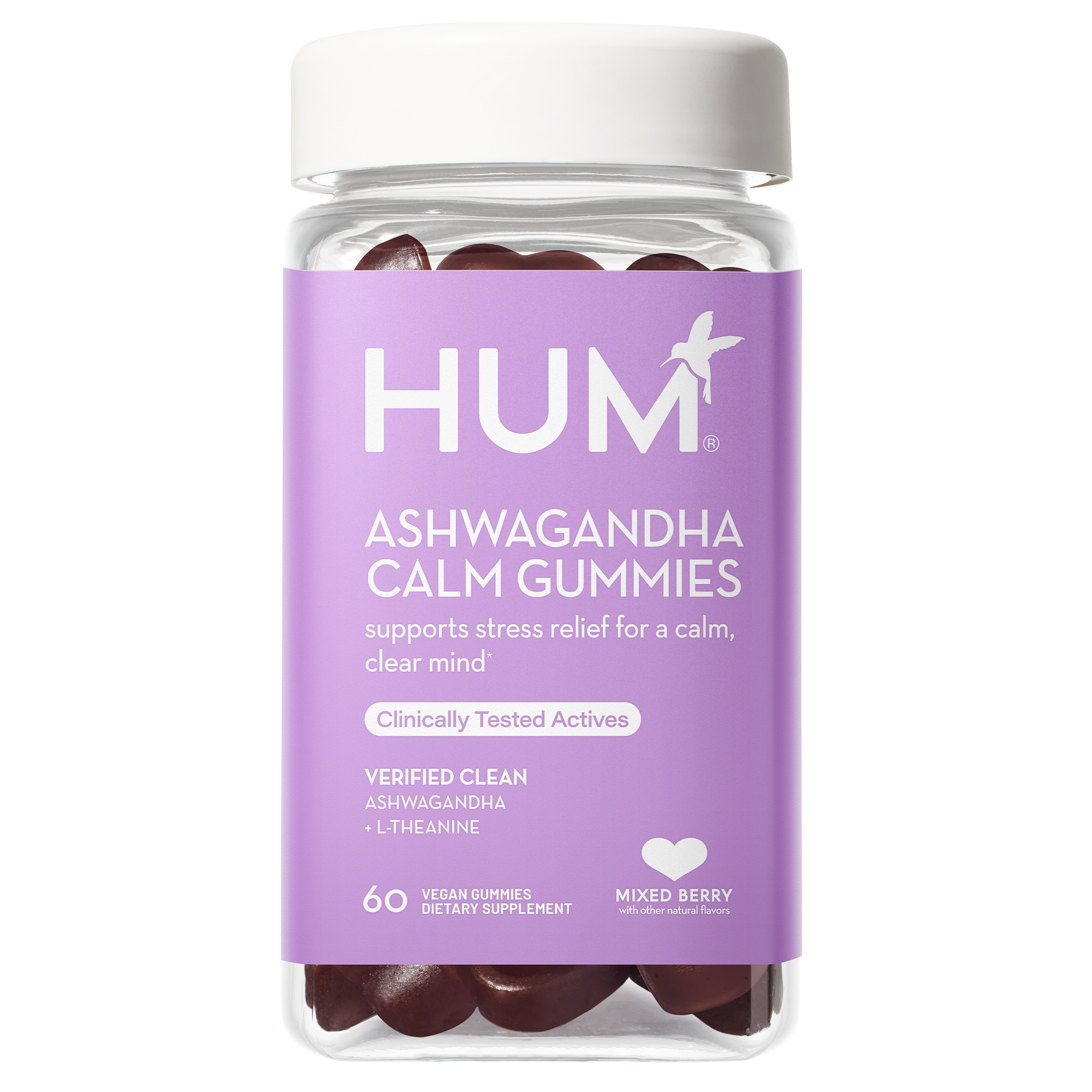Learn how to put the self back in self-care and overcome wellness overwhelm. Spoiler alert: Simplicity is the name of the game.
Taking time to nurture and nourish yourself is a foundational aspect of self-care. But when all of the extra frills, misconceptions, and abundance of noise take over, self-care can become overwhelming… and may even do more harm than good.
To prevent that from happening, you’ll want to take a smart, safe, and simplified approach to self-care that weeds out the excess (and nonsense) and puts the focus back on your individuality. Keep reading to discover how to do exactly that.
What Self-Care Is (and Isn’t)
Simply put, self-care entails making time and space for yourself to promote well-being. Above all, it should include what serves you on a personal basis. Self-care can be as simple as taking a few deep breaths when you’re overwhelmed or saying no to plans when you need some time alone. It can also include any aspect of a wellness routine as some of us may automatically envision it—like practicing yoga a few times a week, reading before bed, or preparing nourishing meals—plus “fancier” things like skincare routines, spa days, and taking time off to travel. However, self-care and luxury aren’t synonymous.
“We can no longer view self-care as a luxury reserved for those with ample time and resources. Rather, it [should] become a necessity,” shares Elizabeth Winkler, LMFT, a psychotherapist and certified meditation teacher in Beverly Hills. Self-care doesn’t have to be costly, laborious, or time-consuming. “My morning meditation practice costs nothing and allows me to decide how much time I want to dedicate to it,” she offers as an example.
Shauna Faulisi—a holistic nutritionist, celebrity wellness chef, and creator of the Soul Wellness Method—agrees, adding that one of the biggest misconceptions about self-care is that it’s self-indulgent. In fact, her own vision of self-care includes but goes beyond rest and relaxation.
“I feel my best when things are in order and when I don’t have tasks looming over my head,” she explains. “I believe self-care is doing the hard things and the things we don’t always want to do: having those hard conversations, being honest with ourselves, sitting down to figure out our finances, [and] drawing boundaries to protect our peace.” She says these poignant actions promote freedom and stronger sense of self, which can “ultimately lead us to make healthy decisions that support our well-being.”

When Self-Care Becomes Self-Harm
Self-care practices can be wonderful, so long as they align with your mind, body, values, and needs. However, potential perils arise if you become too rigid, rely on external pressure and validation, and fail to approach wellness culture with a discerning eye.
Being Too Rigid
Self-care can take a turn for the worse if you strive for perfection and go beyond a healthy level of discipline. “Sometimes we become overly attached to specific self-care practices that initially transformed our lives,” Winkler explains. “However, if we become too rigid or dogmatic in our approach to self-care, it can hinder us rather than provide a foundation for freedom.”
In these cases, self-care can morph into something closer to self-harm. Examples include:
- Over-exercising
- Orthorexia (an unhealthy obsession with eating healthy food)
- Being inflexible to the point of sabotaging yourself and straining ties with others
“This rigidity often stems from the ego’s involvement and signifies an opportunity for us to release attachments and learn how to be more in flow and letting go,” Winkler continues. Once you loosen up an iron grip, that’s when the real practice and benefits of self-care begin.
Succumbing to External Influences
Trying to keep up with the latest trends and following what everyone else is doing may seem like a standard, but doing so is unlikely to serve you. “The newest and shiniest trend can be deemed as the end-all-be-all of health and wellness, which is typically not the case,” Faulisi explains. Instead, following them to extremes “ultimately takes the power out of your hands, in addition to not taking into account that each and every one of us is different.”
Taking Claims at Face Value
The sheer abundance of self-care practices, products, services, and information can be overwhelming. At the same time, misinformation, “miracle products,” and “magical cures” aren’t just unnecessary; they may even be dangerous. Above all, we must adequately assess the quality of all the marketing claims and info thrown our way.
“With any information, we have to be discerning and remember everything is nuanced. There are few things that are black and white,” Faulisi shares. “I am skeptical of anyone or any movement that positions itself as the one and the only way.” (Frankly, we all should be.)

How to Embrace Safe and Simple Self-Care
To start a simple self-care routine or tweak an existing one so it actually reduces (rather than exacerbates) stress and overwhelm, heed these expert-vetted tips.
1. Go Inward
The first step to simplifying your self-care routine so it’s fully aligned with your needs and values (i.e., your actual self) is to look within. This can include sitting with yourself and journaling, as well as Winkler’s go-to: meditation. “Meditation has been proven to shrink the amygdala, the part of the brain responsible for fear, anger, and stress,” she explains. “Even a few moments of present-moment breathing can have a powerful impact.”
In addition to meditating, she suggests:
- Gazing at the sky
- Grounding yourself in nature
- Repeating mantras to “move from a noisy and fearful state into stillness and inner peace”
Giving yourself the time and space to reset is, in and of itself, a powerful form of self-care. From there, you can dig deeper to discover what you like, what you could use more or less of in your life, and what tools or practices can help you on your personal wellness journey.
2. Know Before You Go
It’s crucial to discern which wellness modalities and products are actually beneficial, and a little research goes a long way. One easy way to approach the wellness industry with a critical mindset and help you make informed decisions is to employ the SIFT method:
- S = Stop (avoid knee-jerk reactions and emotional responses)
- I = Investigate (look further into the source’s credibility, motives, biases, and overall quality of information)
- F = Find better coverage (see what reputable, objectives sources say on the matter)
- T = Trace claims, quotes, and media to the original context (ensure accurate representation of the information given from the original source)
3. Explore Different Self-Care Practices
“The best way to discern which self-care modalities are [right for you is] to try them,” says Faulisi. Once you do some inner exploration, research, and fact-checking, you’ll narrow down your options.
You can always start with healthy self-care practices that are free of charge. “Accessible practices that do not cost money include journaling, dream work, spending taking baths, exercising, practicing mindfulness, listening to frequency tones, dancing or moving your body, listening to music, and breathwork,” Winkler shares. Some things may attract you more than others, while others may take you out of your comfort zone—which can actually be a good thing.
Winkler says you can also find inspiration by:
- Reading books
- Listening to podcasts
- Exploring shadow work
- Looking into astrology
- Engaging in guided journal
These aren’t just self-care practices on their own, but also “wonderful ways to deepen self-understanding,” she explains.
4. Listen to Your Body
After you experiment with a given self-care practice, Faulisi suggests conducting your own biofeedback and assessing how you feel in your mind and body. She advises asking yourself the following: “Do you feel like your energy, mood, blood sugar are stable? Do you feel happy and vibrant? Are you being true to what your body needs to feel its best so you can show up in the world as your best?” Only you can answer these questions, and it’s important to be honest.
Moreover, to create a simple self-care practice that truly serves you, you’ll need to tune out noise from friends, family, and wellness culture at large—even if it’s (mostly) shared in good faith. “It’s important to be informed and equip yourself with information, but ultimately, you know what’s best for you,” Faulisi continues. “This takes patience, real honesty, and the confidence to stand on your own, even if other people in your life are doing it differently. This approach really forces you to look inward and tap into what your body needs and tells you.”

5. Start Small
Again, being dogmatic or overly ambitious runs counter to self-care, so a low and slow approach is key as you build a new habit. “I recommend starting small and focusing on consistency rather than duration,” Winkler shares. “By showing up every day for any type of self-care practice, you build muscle memory that connects you to the present moment.”
Baby steps, built upon and sustained over time, can help you achieve your wellness goals more efficiently and more quickly than you may think. “Even just a few minutes each day will accumulate over time and yield benefits,” Winkler assures us.
6. Try Habit Stacking
To stay consistent, Winkler suggests habit stacking, which entails adding a new habit onto an existing one. “This creates a seamless integration of self-care into your routine,” she explains.
For example, easy ways to be more consistent with your supplement regimen include:
- Taking water-soluble supplements after drinking a glass of water upon waking
- Taking them after you finish your meal and put your dishes in the sink
- Taking sleep supplements after brushing your teeth at night
The Takeaway
To truly embrace safe and simple self-care, we need to go back to basics and focus on the actual terms themselves: self (i.e., you and no one else) and care (i.e., grace and grounding for your mind, body, and spirit). Personalization and tuning into your inner cues should always triumph over trends and chatter.
With that in mind, the same goes for adding products—supplements included—into your self-care regimen. For instance, just because everyone’s taking a trending herb, or a loved one says that a given ingredient worked wonders for them, doesn’t mean that you should automatically follow suit. On the contrary, focus on what you truly need to thrive and build your individualized plan from there. (P.S. It’s always a good idea to consult a healthcare professional before taking new vitamins and supplements.)
To discover how HUM can help you on your wellness journey, take the quiz linked below to hone in your concerns and goals. Once you get your recommendations, we encourage you to explore the science and clinical studies behind the formulations so you can confidently break ground with your new and improved self-care plan.

The Best Productivity Framework for You, Based on Your Astrological Sign

How to Curate Your Social Media Feed for Better Mental Health

The 8 Best Guided Journals and Self-Care Planners for Daily Inspiration








